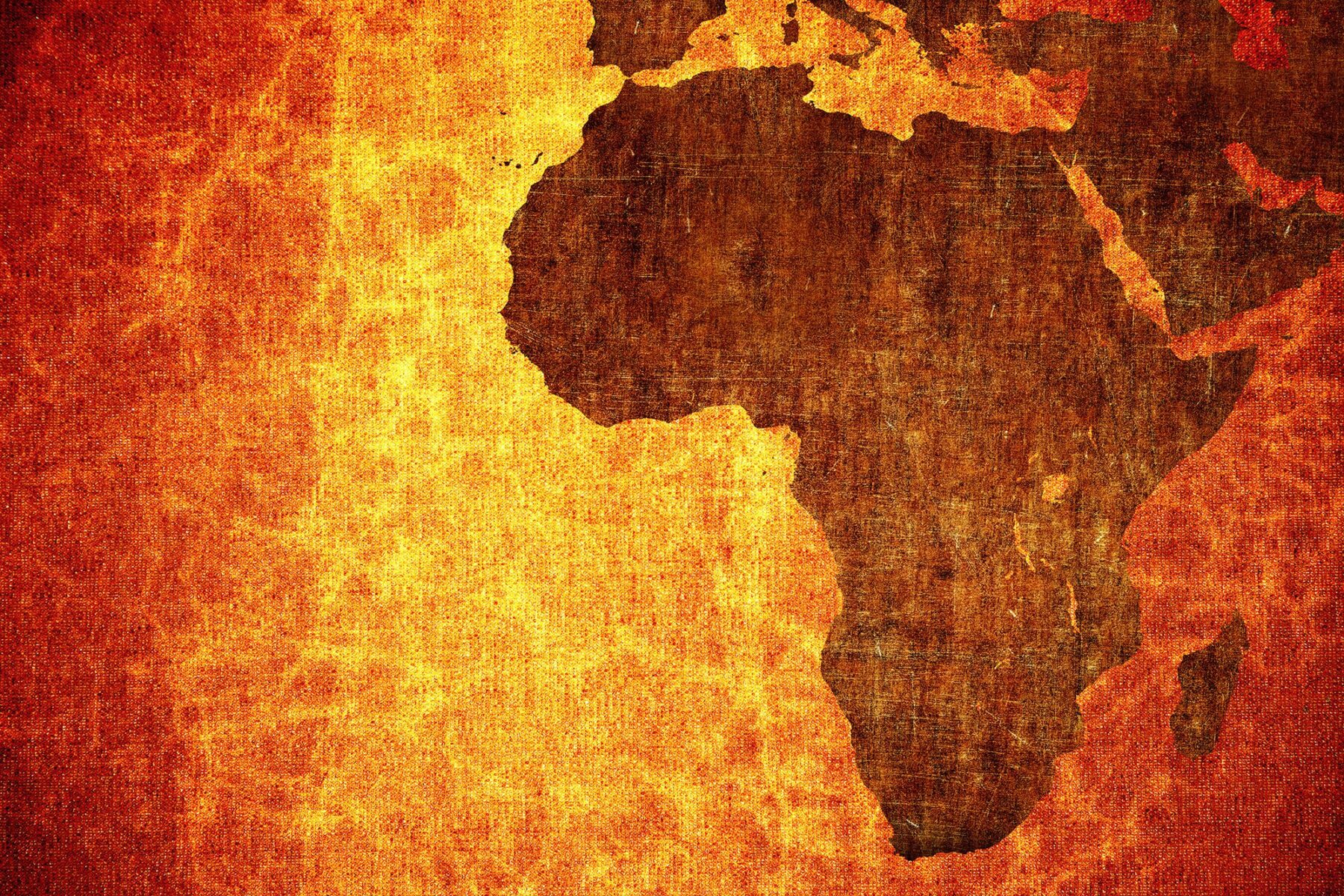In part I of this article, I discussed some of the key themes and tendencies of President Trump’s foreign and security policies, and some key global issues where he has made a significant policy impact. In part II, I consider a number of the regional conflicts where Trump’s influence has made itself known.
North Korea: Trump did not create the latest upswing in tensions following the DPRK’s surprisingly rapid advances in nuclear and missile technology, but his fiery rhetoric certainly hasn’t helped, and has at the very least brought back widespread nuclear holocaust anxiety to the peoples of the US and East Asia, that had previously died with the end of the Cold War. Trump’s unpredictability, thin skin, and lack of any deliberation of consequences in his rhetoric certainly increases the risk of accidental conflict. But equally concerning have been comments by National Security Advisor Gen. H.R. McMaster to the effect that ‘time is running out’ for peaceful means to stop North Korea’s acquisition of a full ICBM nuclear capability that could reach the mainland US, with perhaps only a few months, and that the existence of such a capability is not something the US could tolerate. The implication would appear to be that a military option is something under serious consideration, with all the cataclysmic consequences that could entail. It may be that this is bluff, intended to force concessions from North Korea, or firmer action on sanctions from China, but then again it may not.
Syria/Iraq: For the most part, the Trump Administration’s policy in these countries appears to have been one of continuity with that of Obama: an aggressive air and special forces campaign against ISIS, combined with support for allied forces in this fight, namely the Iraqi army and allied militias, and Kurdish-led forces in Syria, while mostly avoiding direct entanglement in the rebellion against the Assad regime. There are some changes: as noted above, the reduced concern with civilian casualties, and of course Trump’s cruise missile attack on Syrian government forces in March, earning him widespread praise from otherwise sensible commentators for finally being ‘Presidential’. However, this did not lead to any wider military action against government forces. Another significant change, in the opposite direction, was Trump’s decision in July to end a covert CIA training program for Syrian rebel forces. For the most part, the US appears to have been content for the Syrian government and its allies on the one hand, and the US and the forces it supports on the other, to crush ISIS from either end, while letting the government’s war with rebel forces take its course. The question of what will happen to Syria when ISIS is finally driven out is left to another day, with a long-term frozen conflict likely the least awful forseeable outcome.
Iran: In keeping with his hatred of anything Obama did, and disdain for multilateralism, Trump ‘decertified’ the Iran nuclear deal in October, signed between Iran and the P5 Security Council members, including the US, and Germany, in 2014. While not immediately re-imposing sanctions, the door has been opened for Congress to do so, while the decision to re-impose is one that will come up again for Trump this month. Generally, the Trump Administration has taken a hard line against Iran, at least verbally and with some additional sanctions, with other senior Administration officials, such as McMaster and UN Ambassador Nicki Haley, taking a strong anti-Iran stance. Trump has also encouraged Saudi Crown Prince Mohammed bin Salman’s virulently anti-Iran approach. The risk of US conflict with Iran (probably initiated by the US, or possibly by Saudi or Israel) has certainly increased since Trump took power.
Israel/Palestine: A common refrain regarding Trump’s decision to go against previous US policy and virtually the entire international community by recognizing Jerusalem as the capital of Israel, is that it has damaged or even put an end to the ‘peace process’. This is inaccurate, as there has not been a peace process for a long time. It has likewise been clear for a long time that Israel had no intention of allowing the Palestinians anything resembling a viable and sovereign state (as former Secretary of State John Kerry has confirmed), and that the US and the international community had no intention of taking any serious action to pressure them to do so. Trump’s announcement has underlined the US and Israel’s international isolation on the issue, and underlined the demise of the two-state solution as a serious possibility. Moreover, it appears, at least for now, to have goaded the mandate-less Palestinian President Mahmoud Abbas to finally cut the apron strings to his US sponsor and reject US mediation. Whether all this will lead to any significant change in the dynamic of ongoing creeping Israeli expansion and de-facto annexation in the West Bank and squeezing of the Palestinian population, with periodic outbreaks of largely ineffective Palestinian resistance met with redoubled repression, is unclear.
Saudi Arabia: Still in the Middle East, perhaps the most potentially destabilizing influence at the moment is Saudi Arabia under its new Crown Prince, young-man-in-a-hurry Mohammed bin Salman, or MBS, who ousted his cousin Mohammed Bin Nayef in a palace coup in June. As noted above, MBS (and his father, the ailing King Salman) has developed a very close relationship with the Trump-Kushner family, and indeed one claim in Michael Wolff’s new Trump Whitehouse exposé, Fire and Fury, is that Trump claimed to friends “We put our man on top” in relation to MBS’s ascension.
MBS, in his former role as Defense Minister, was the architect of the horrific Saudi-led war and blockade in Yemen that has claimed more than 10,000 lives and brought the country to the brink of catastrophic famine, while failing to break the military stalemate on the ground. Since taking power, he has engaged in highly reckless behavior across the region, seeking to push the Kingdom’s military and economic weight around against its neighbors. Along with the UAE, Saudi Arabia cut off relations with Qatar and sought to implement a blockade to force the country to cut ties with Iran, end alleged (but unproven) support for ‘terrorists’, and close down Al Jazeera, among other demands. More recently, Saudi Arabia kidnapped the Prime Minister of Lebanon, Saad Hariri, and forced him to announce his resignation, in an attempt to force a confrontation with Shia political party/militia Hezbollah, the dominant force in the Lebanese government. After French President Emmanuel Macron persuaded MBS to allow Hariri to return to Lebanon, the latter rescinded his resignation. Most seriously, Saudi intensified its blockade of Yemen in November, deepening the burgeoning humanitarian crisis, although international pressure led to a partial easing of these measures a few weeks later. The situation in Yemen, however, remains apocalyptic.
Internally, MBS has attempted to concentrate power in his own hands and centralize the corrupt royal patronage network by having a large number of Saudi royals, businessmen and other leading figures arrested for corruption (which the entire Saudi Royal Family is almost certainly guilty of), held in luxurious surroundings in the Riyadh Ritz, and released only when they disgorge their ill-gotten wealth into the safe hands of the Saudi Treasury, where of course it will be used only for the good of the nation and not MBS’s personal ends.
It is possible that all of this would have happened in any case, Trump or no Trump, but Trump and Kushner’s encouragement of MBS’s reckless and arrogant policies (Kushner and bin Salman are said to have stayed up to the early hours of the morning discussing strategies, just a few days before the Crown Prince unleashed his wave of arrests), have certainly enabled them, and it is at least possible that a more cautious US policy would have engendered more restraint on the Saudi side. The continuing free hand the US is offering Saudi Arabia carries two main dangers: first, that the crisis in Yemen will tip over into a humanitarian catastrophe, and second, that the hard anti-Iran line pursued by the US, Saudi and Israel will develop a momentum that could lead to war.
Conclusion
The impact of the Donald Trump Presidency on international security has been clearly negative. While in some areas there has been relative continuity with previous US policy, in others Trump has, through both policy and rhetoric, ramped up tensions, while dismantling policies and international agreements aimed at reducing them, at controlling conflict, and at tackling devastating climate change. The unthinkable possibility of nuclear war has become more likely, as has a less apocalyptic but still catastrophic war with Iran; but even if these eventualities are avoided, it is likely that the damage to international stability and institutions will persist beyond Trump’s tenure.
In summary, I see no reason to revise a statement by the staff and Board of Trustees of World Peace Foundation in February, which described Donald Trump as a “threat to world peace”, stating:
“Our concern stems from the cumulative impact of President Trump’s statements and executive orders, including:
- His contempt for human rights, including explicit embrace of torture, bigotry, misogyny and Islamophobia;
- His expressed commitment to militarism while disregarding the norms, processes, and institutions that have sustained the resolution of international disputes without resort to armed force;
- His reckless disregard for the impact of his statements and decisions, as demonstrated through his insistence on forging ahead with policy measures absent any attempt at consultative process; and
- His readiness to retaliate against those who criticize him, thereby chilling dissent and rejecting democratic practice.
Given the enormous power invested in the Office of the President of the United States, arbitrary exercise of authority presents itself as a significant threat to international peace and security, and increases the likelihood that disputes will escalate to armed confrontations. The United States has in its history many times failed to prioritize peacemaking, but never before has a new President so carelessly undermined the Government’s very potential to be a force for peace, nor so recklessly dismissed the value of the endeavor.”

